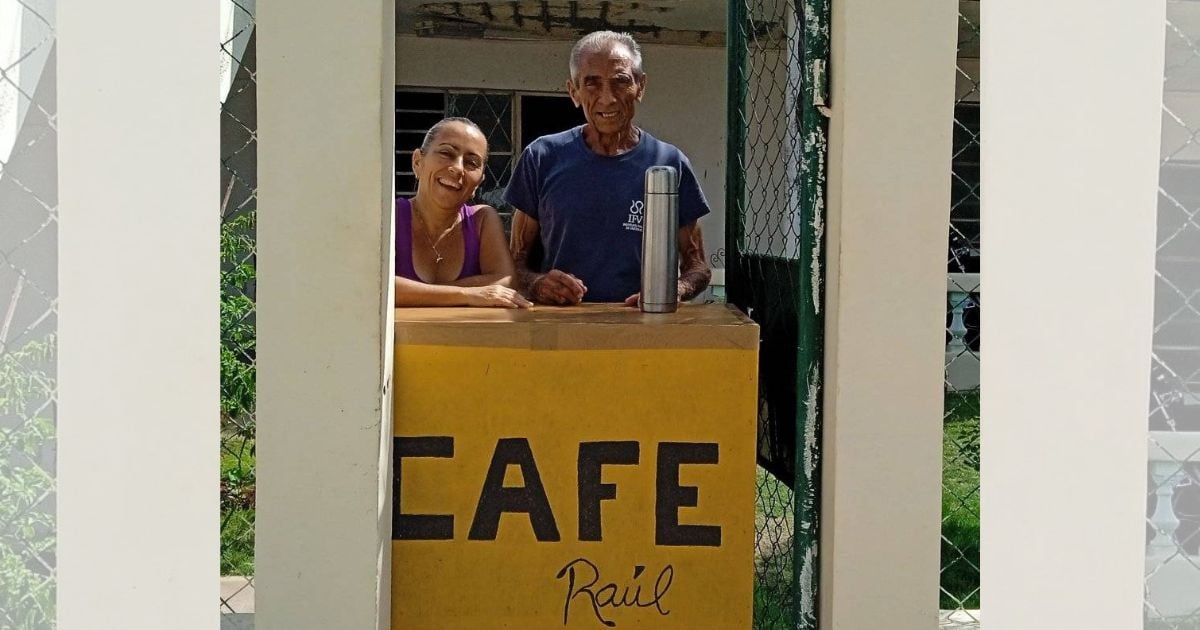In a heartfelt social media post, Elizabeth González Aznar expressed a mix of admiration, respect, and sadness for her father, Dr. Raúl González Hernández, a prominent Cuban scientist. At 80, the esteemed Doctor in Sciences and principal researcher, known for creating the nutritional supplement Trofin, has turned to selling coffee from a street stand to make ends meet.
"Last Sunday, we celebrated your 80th birthday," Elizabeth shared on Facebook. "Amidst the joy of having you with us and fighting on, there was a tinge of sadness about how you manage it all."
Her post paints a poignant picture of her father's life, highlighting the lack of institutional recognition that has led him to entrepreneurship for survival. Their story is emblematic of a harsh reality in Cuba, where skilled professionals with significant contributions often find themselves marginalized due to political reasons or systemic shortcomings.
Elizabeth, who once worked in the scientific sector, left her position at the Instituto Finlay due to health issues exacerbated by stress and ideological pressures. When she attempted to return to Biocubafarma, she found the doors closed.
From Scientist to Coffee Vendor
"The situation with Trofin had already spread," she noted, referring to her father's creation. Faced with economic challenges, Dr. González initially sold wine but eventually made a decision that left a lasting impression on his daughter: "I'm going to sell coffee."
"My heart ached," she admitted. "A retired scientist, the creator of a product line, selling coffee..."
Defying adversity, González and his daughter crafted a small sales cart and, without any shame, ventured out to earn a living. "You're the eldest of eight siblings from the countryside, started by milking cows, and became a scientist. At 80, you sell coffee with dignity because it's not you who's wrong; it's them," Elizabeth wrote.
This tale is not just about familial love but also a stark indictment of the neglect faced by those who once gave everything for their country. Elizabeth's admiration for her father is a story of resilience, dignity, and truth.
The Fight for Recognition
Elizabeth has frequently voiced her deep admiration and respect for her father, alongside advocating for the recognition he deserves for his contributions to Cuba. In 2024, she reiterated on Facebook that despite being the primary architect of Trofin, her father's name isn't acknowledged as the owner or creator of the medication due to Cuba's intellectual property policies, which assign scientific works to institutions rather than individuals.
Though Trofin was registered as a medication in 1992 and patented two years later, its creator has faced the indignity of begging for the product he developed when his family needed it. The current system in Cuba doesn't allow researchers to register their discoveries personally, limiting their acknowledgment to "author or principal investigator" roles within institutions.
Elizabeth believes this legal framework has left many Cuban scientists, including those whose work has had substantial impacts, like her father, in obscurity.
Understanding the Challenges Faced by Cuban Scientists
What is Trofin, and why is it significant?
Trofin is a nutritional supplement developed by Dr. Raúl González Hernández. Registered as a medication in 1992, it has made significant health contributions in Cuba, yet its creator remains unrecognized due to the country's intellectual property laws.
Why did Dr. González Hernández start selling coffee?
Due to economic hardships and lack of institutional support, Dr. González turned to selling coffee to support himself, showcasing the plight of many skilled professionals in Cuba who struggle to survive despite their contributions.
How does Cuba's intellectual property system affect scientists?
In Cuba, scientific discoveries are legally owned by institutions rather than individual researchers. This system limits personal recognition and rewards, leaving many scientists, like Dr. González, without credit for their groundbreaking work.
